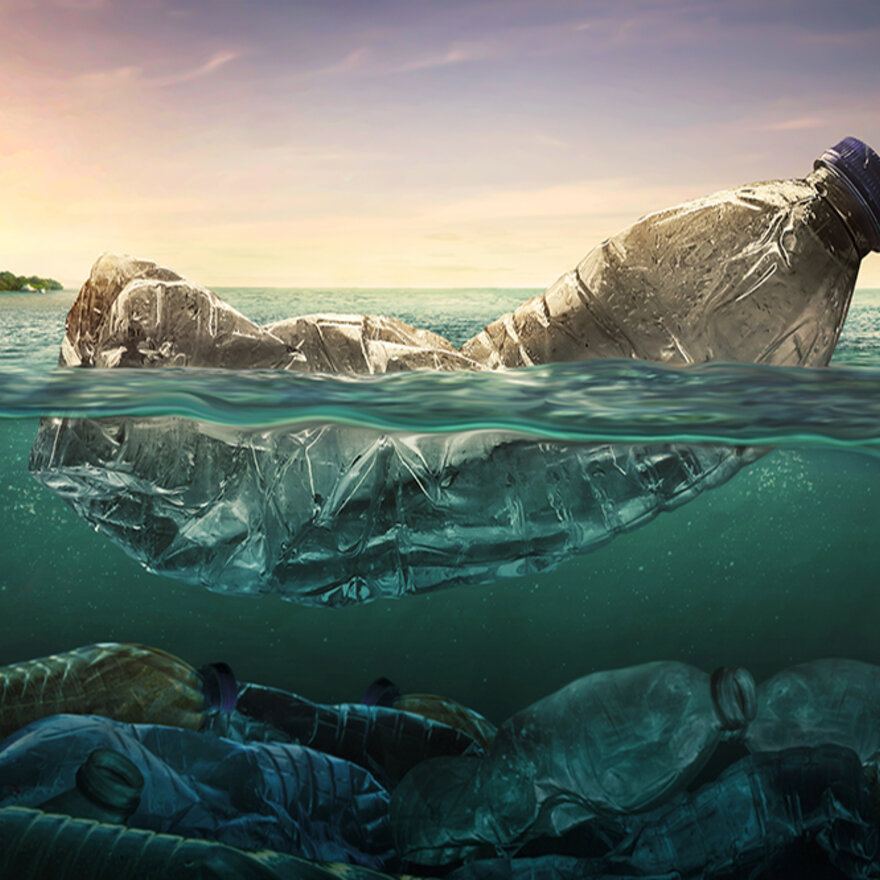Several researchers have tried to find enzymes in nature that can degrade plastic. Such a discovery was published as groundbreaking research in 2022, but now a research team from Norway and the US has shown that these claims were incorrect. The new study is published in Nature Communications.
The accumulation of plastic waste is a global and well-recognized ecological problem. Some synthetic materials are very stable and can persist in nature for hundreds of years. This is particularly true for the non-hydrolyzable polymers based on “carbon-carbon” bonds, such as polyethylene or poly(vinyl chloride). These plastics are used a lot, in a wide variety of applications, but are hard to recycle without loss of quality. Thus, the majority of the waste, amounting to 200 million tons per year world-wide, is either incinerated or simply landfilled.
In 2022, two breakthrough research papers reported the discovery of enzymes that can break these non-hydrolyzable polymers. One of these novel proteins named “Ceres” was found in the saliva of greater wax moth larvae and was shown to oxidize and degrade polyethene films.
The other enzyme, a catalase-peroxidase, was discovered in the bacteria populating the gut of another insect called fall armyworm and was able to depolymerize poly(vinyl chloride) powders. Enzymes like this would imply a paradigm shift, because they could be used for recycling of much used plastics in an environmentally friendly and efficient manner.
Did not get the same results
Intrigued by these recent findings, an international team of researchers from Norway and the United States led by NMBU professor Gustav Vaaje-Kolstad took a closer look at these promising enzymes, trying to replicate the groundbreaking observations. The results of this work were published this week by Nature Communications and show that the previously made claims were wrong. Using multiple types of polyethene and poly(vinyl chloride) materials, the team showed that none of these were degraded by these enzymes.
Digging deeper into the data, Vaaje-Kolstad’s team was able to explain how and why the original observations may have been misinterpreted, leading to wrong conclusions and claims. For example, the team showed that the infrared spectroscopy analyses featured in the previous studies were affected by the presence of contaminating compounds. These contaminants produced signals very similar to the signals expected from plastics changed by enzymes.
Working with new enzymes
“The idea that some enzymes may be able to oxidize and degrade non-hydrolyzable synthetic polymers such as polyethylene is not new, and people have been looking for such enzymes for more than twenty years”, says Vaaje-Kolstad, who leads the Enzyclic project that aims at developing new technologies for enzymatic recycling of the plastic waste.
“We show that this search has not been successful yet”, he concludes. "While perhaps somewhat disappointing, our findings are very important since a considerable fraction of worldwide research efforts on enzymatic recycling of plastics is based on the two original studies that now have been disproven."
“I am still an optimist”, Vaaje-Kolstad adds, “we are currently looking at novel enzyme systems that actually may get the job done”.
In his view, another, highly important strategy to tackle the problem of polyethylene pollution is to design and implement a new generation of polyethylene-like materials that will incorporate a small fraction of weaker (hydrolyzable) chemical bonds that can more easily be targeted with enzymes.
Sources:
- Stepnov, A.A., Lopez-Tavera, E., Klauer, R. et al. Revisiting the activity of two poly(vinyl chloride)- and polyethylene-degrading enzymes. Nat Commun 15, 8501 (2024). https://doi.org/10.1038/s41467-024-52665-z
- Zhang, Z., Peng, H., Yang, D. et al. Polyvinyl chloride degradation by a bacterium isolated from the gut of insect larvae. Nat Commun 13, 5360 (2022). https://doi.org/10.1038/s41467-022-32903-y
- Sanluis-Verdes, A., Colomer-Vidal, P., Rodriguez-Ventura, F. et al. Wax worm saliva and the enzymes therein are the key to polyethylene degradation by Galleria mellonella. Nat Commun 13, 5568 (2022). https://doi.org/10.1038/s41467-022-33127-w

RESEARCH PROJECT:
Enzyclic
The Enzyclic project aims to develop new technologies for enzymatic recycling of plastic waste
The project leader is Gustav Vaaje-Kolstad
Read more on the project website